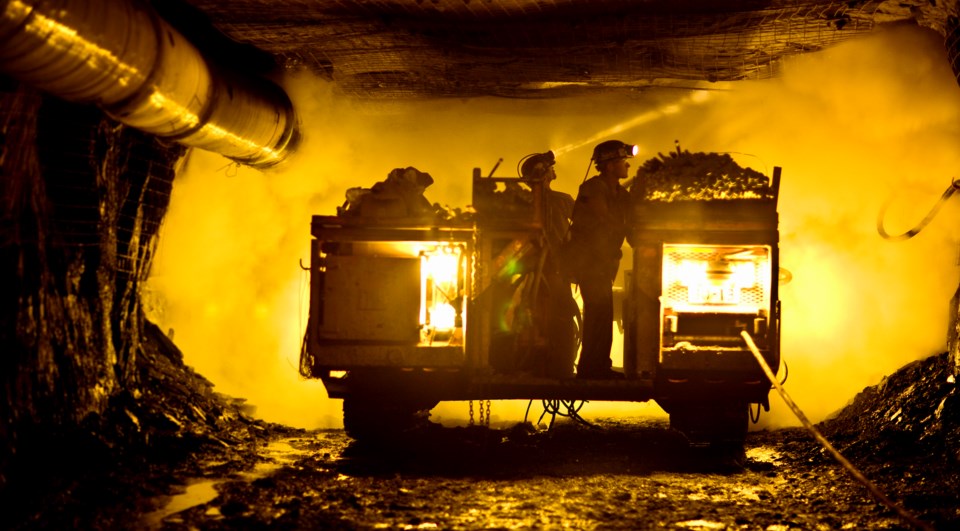It is no secret that the mining industry has been feeling the pressure of a tight labour market for many years. But people are one of mining’s largest assets, so recruiting and retention should be top of mind. It is essential to enhance how the industry brings in more people and encourages employees to stay and grow. This is more critical than ever, considering the huge demand for metals and minerals needed for the energy transition and to build our green, sustainable future.
Here are five ways companies can grow and maintain a mining workforce.
No. 1: Support inclusivity, diversity and understanding
When we think of inclusion and diversity, it might be easy to first think of race or gender. The truth is we need to think about lots of diverse groups of people to build a work environment for everyone. Mining companies can update their workplace strategies. How? By identifying and changing processes to eliminate unconscious bias. They can also encourage all employees to better understand people with different worldviews or abilities.
Company culture has quickly become an important driver of job satisfaction and employee retention. More than just a box-checking exercise, intentional diversity and inclusion efforts can build a meaningful culture in the workplace. A team with a diverse set of perspectives can be a significant business advantage. Thanks to concerted efforts of many major global mining companies like Vale, Cameco, Newmont, Teck, and Rio Tinto, we are also seeing a more diverse workforce.
No. 2: Foster a solid mentorship program
According to the Pew Research Center, more than 60 per cent of U.S. employees cited a lack of career-advancement opportunities as a leading reason for leaving their jobs. Designing intentional mentoring programs can expand career growth options. Compared with an employee leaving a company, mentoring is less costly than replacing an employee. Plus, with a relatively low cost, companies can benefit from massive returns on the investment.
While mentoring programs have traditionally teamed seasoned veterans with new employees, we are seeing new, creative takes on mentoring. For example, reverse mentoring allows a younger person to mentor an older person on topics like relating to millennials and Gen Z or utilizing technology. Another creative approach is peer mentoring – where colleagues mentor each other. At Stantec, we have launched an extremely successful women’s peer mentoring program to strengthen professional networks and promote individual and group development. The program encourages engagement while providing a forum for diverse perspectives and collaboration. The positive results of this group have surprised everyone involved!
One outcome has been improved retention rates among younger women by creating an open environment. The program has helped prepare more women for leadership roles and has empowered women, and those who identify as female, from diverse and more reserved cultures to step forward and to grow and contribute.
No. 3: Communicate new, unexpected roles in the industry
Another way to attract people into the mining industry is to feature non-traditional jobs. A modern mine needs support in roles that simply did not exist until recently. Technological advancements, social license to operate, and strict environmental regulations mean mining companies need new kinds of expertise. The industry needs professionals in sustainability, automation, community engagement, data science, and more.
This is also a win for inclusivity as there is a new opportunity to be creative with remote work. People who were not interested in mining, or who were not able to work at a mine, can now find lucrative jobs in the mining industry. Now that millions of people have dabbled in remote work, the door is open for more off-site work. Virtual and augmented reality has huge applications in the mining industry.
Corporate social responsibility has increased the need to respectfully engage with Indigenous communities. Similar to needed technical positions, the mining industry requires more professionals who are aware of Indigenous values. People in these roles would also seek opportunities for collaboration and ensure that the priorities and voices of Indigenous Peoples are honoured through projects that impact natural resources.
No. 4: Do the right thing
This is obvious but sometimes overlooked. Doing the right thing means taking care of people and the planet. Another way to think of this is embracing the environmental, social, and governance (ESG) framework. Though this is not unique to mining, enhancements to employee benefit packages are required to accommodate the needs of evolving family models (e.g. parental leave and religious holidays).
Recognition plays an important role in this discussion, too. Simply put, people want to be recognized for the good work they do. Recognition is shown to enhance morale, productivity, performance, engagement, and retention. Leadership researchers Jack Zenger and Joseph Folkman published an article on this subject in 2022 saying, “leaders rated in the bottom 10 per cent for providing recognition had employees at the 27th percentile on engagement. By contrast, those leaders rated in the top 10 per cent were at the 69th percentile. Those leaders in the top group also had employees who were much more confident that they would be treated fairly; felt they were kept better informed; showed significantly higher levels of discretionary effort; and were much less likely to quit.”
Trang Tran-Valade is Stantec’s business development leader, mining, Sudbury, Ont. Kwestan Salimi is a geotechnical engineer, mining, Denver, Colo.





